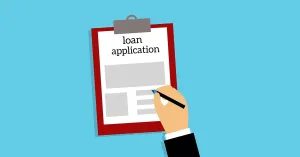The 2020 pandemic has caused an uproar in the business world and especially in the field of lending. The unexpected emergence of the COVID-19 virus has created a wide range of new challenges and opportunities in the lending market, for the initial reaction of the syndicated lending market, such as banks and other traditional lenders, has been to pull back.
This has provided a unique opportunity for private credit lenders to act as ready sources of capital and liquidity in creative structures. However, prudent private credit lenders are stress-testing their existing portfolio. As private credit lenders consider the opportunities and risks that COVID-19 presents on new and existing portfolio financings, the Rules of Thumb blog from MoneyThumb wanted to highlight a few unique considerations that affect our private lending customers.
This article from The National Law Review written by Peter J. Antoszyk, a partner in the Corporate Department and a member of The Private Credit and Business Solutions, Governance, Restructuring & Bankruptcy Groups, does a fantastic job of explaining the challenges private lenders are facing during these trying times. For instance, COVID-19 might impact the documentation of leveraged buy-out transactions in a number of ways. For example:
- Acquisition Agreements & Lender Commitments. Generally, sponsor-backed acquisitions are subject to "certain funds" financing commitments subject only to a limited list of narrow conditions to closing. The limited representations and warranties, the truth and accuracy of which are conditions to closing, generally include "acquisition agreement representations"; that is, the representations and warranties made in the acquisition agreement which, if not satisfied, would give the sponsor/buyer the ability to terminate the acquisition agreement (and concomitantly, the lender the ability by extension to terminate the financing commitment). These acquisition representations are often qualified by no "Material Adverse Effect" provisions. Additionally, there being no "Material Adverse Effect" since a referenced financial date is a condition to close – but only to the extent that the occurrence of such Material Adverse Effect gives the buyer the ability to terminate the transaction. "Material Adverse Effect" is generally defined by reference to that term (the "MAE Clause") as defined in the acquisition agreement.
In new acquisition financing transactions, private credit lenders should anticipate that there may be action between buyers and sellers in the negotiation of MAE Clauses in the attempt to address the impact of COVID-19. Private credit lenders should keep an eye out for the possibility of special COVID-19 exceptions (or, more broadly, exceptions for any epidemic, pandemic or disease outbreaks) in addition to the customary exceptions for acts of God as these will both limit the ability of the sponsor to terminate the transaction and the lender's ability to terminate its commitment.
The article from The National Law Review written by Peter J. Antoszyk goes into much more detail about the unique challenges private lenders are facing during this pandemic. It lays out the challenges of private lenders so that every contingency is covered. We strongly suggest you read the article in full if you are a private lender and we would hope that you'd share this blog post with your lending peers on your social media pages.





















Add comment